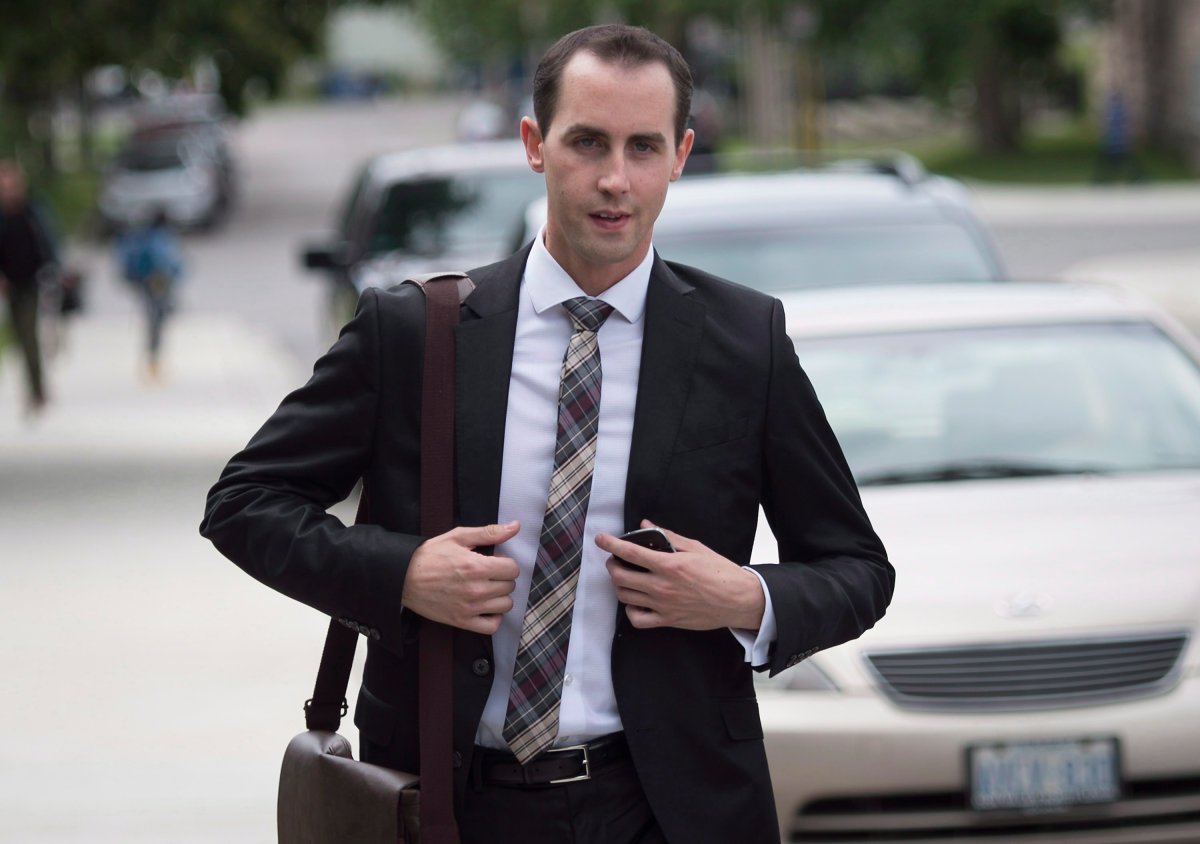GUELPH, Ont. – The former Conservative staffer convicted in the 2011 robocalls scandal is expected to learn his fate this afternoon.

The Crown wants Michael Sona to spend at least a year and a half in jail for his role in the successful plot to misdirect voters on the morning of the 2011 federal election.
Thousands of automated phone calls went out to citizens in and around Guelph on May 2, 2011, with incorrect information on where to vote. Liberal supporters received most of the calls.
Although the Crown and defence agreed he likely did not act alone, Sona, 26, was the only person charged in the scandal.
Sona was found guilty of wilfully preventing or endeavouring to prevent an elector from voting, which carries a maximum penalty of five years in prison and a $5,000 fine.
In his decision, Justice Gary Hearn said the evidence proved beyond a reasonable doubt that Sona “was involved in the scheme very actively.”
Crown attorney Croft Michaelson asked for a harsh sentence in the range of 18 to 20 months to send a message to anyone who might consider committing election fraud.
“(Jail time is needed) to deter this type of conduct in the future, so it doesn’t ever happen again, and more importantly, so those involved in the electoral process are aware we have rules and the rules have to be followed,” Michaelson said.
“And if you interfere with the electoral process and you do something that’s aimed at undermining the constitutional right of citizens to vote, the courts will deal with that.”
Defence lawyer Norm Boxall argued that Sona should get a suspended sentence or a six-to-12-month conditional sentence with house arrest, parole and a requirement to complete community service.
“In my submission it’s not necessary to separate Mr. Sona from society,” Boxall said. “We’re not at risk (from) him, he’s not dangerous.
“It may be that your honour feels that some form of real custody is required to denounce or deter, but in my submission, the length of it in one sense isn’t very important in this type of case, the symbolism of it may be.”
Boxall said a decision on whether to appeal the guilty verdict wouldn’t come until after Hearn delivered his sentence.
Boxall elected to call no witnesses in Sona’s defence, arguing that the Crown failed to definitively identify a culprit in the scheme.
An unidentified person used the fake names Pierre Poutine and Pierre Jones, untraceable prepaid credit cards, and a disposable cellphone to order the automated telephone campaign that misled voters, court heard.
Sona lacked the technical savvy to orchestrate the complicated plot, said Boxall. He argued that the Crown’s star witness – Andrew Prescott, a colleague of Sona’s who had previous experience with ordering robocalls – was a more likely suspect.
Prescott testified against Sona in exchange for immunity, but even Michaelson acknowledged his side of the story “should probably be approached with caution.”
Hearn said he found Prescott’s testimony inconsistent and “largely self-serving.” But he did accept the testimony from other Conservative staffers, who said that Sona openly bragged about ordering the calls.

Comments